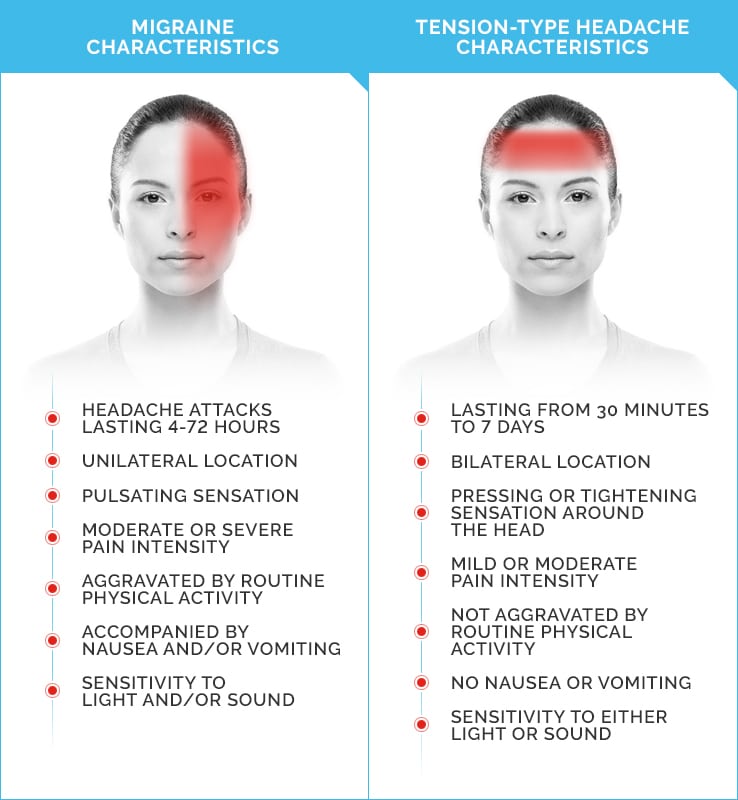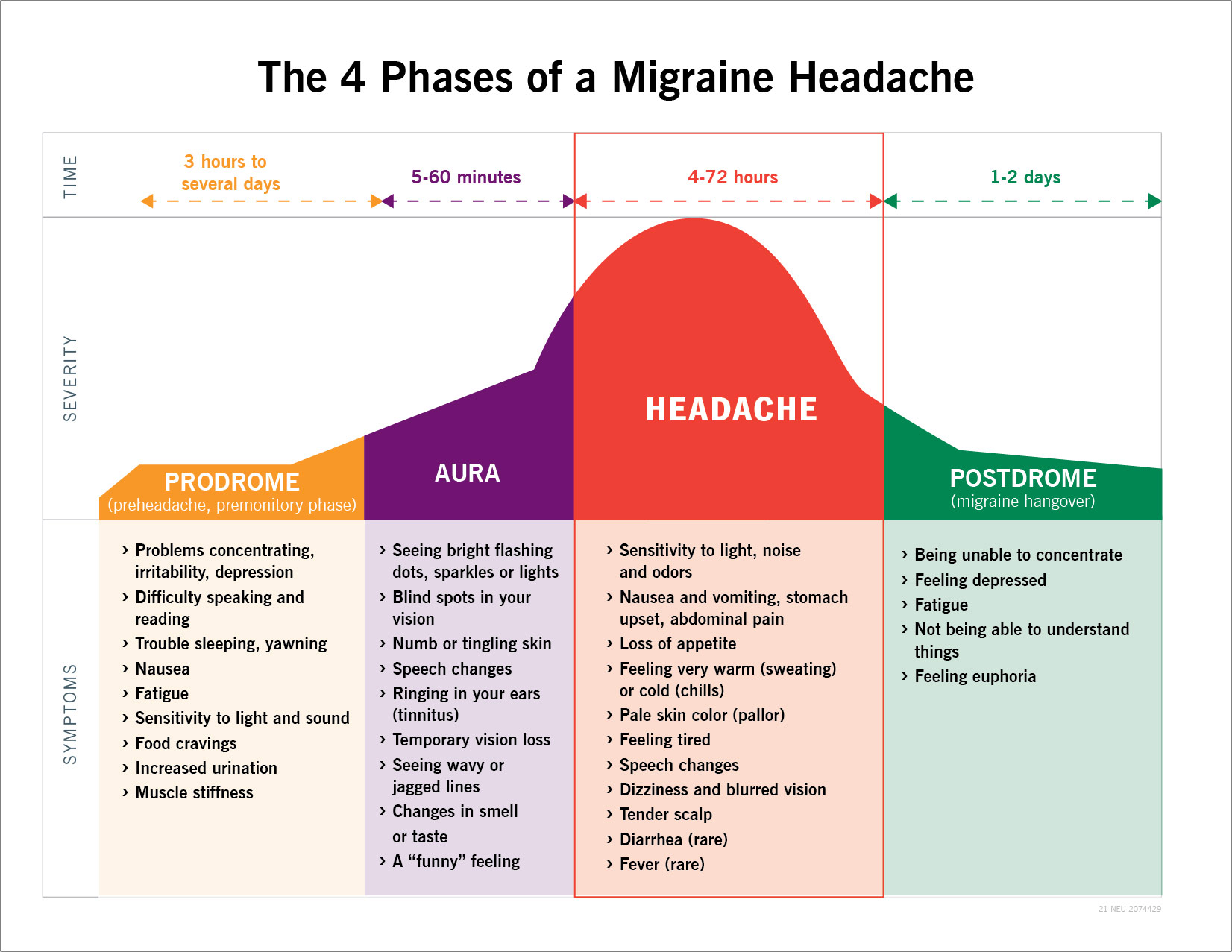Waking up with a migraine can be a debilitating experience that affects your daily life. If you've ever wondered why you have a migraine when you wake up, you're not alone. Many people struggle with morning migraines, which can disrupt sleep patterns and productivity. Understanding the causes, triggers, and solutions to this condition is essential for managing your symptoms effectively.
Migraines are more than just headaches; they are complex neurological conditions that can cause severe pain, nausea, and sensitivity to light or sound. When these symptoms occur upon waking, it can be especially frustrating and confusing. This article will explore the reasons behind morning migraines, the factors that contribute to them, and actionable steps you can take to prevent and manage them.
By the end of this article, you'll have a deeper understanding of why migraines happen in the morning and how to address them. Whether you're looking for natural remedies, lifestyle changes, or medical interventions, this guide will provide you with the information you need to take control of your mornings and improve your quality of life.
Read also:Hawaiian Tropic Scalp Sunscreen The Ultimate Guide To Protecting Your Hair And Scalp
Table of Contents
- What Are Morning Migraines?
- Common Causes of Morning Migraines
- Triggers for Morning Migraines
- Symptoms of Morning Migraines
- Diagnosing Morning Migraines
- Treatment Options for Morning Migraines
- Lifestyle Changes to Prevent Morning Migraines
- Natural Remedies for Morning Migraines
- Medical Interventions for Morning Migraines
- Prevention Tips for Morning Migraines
What Are Morning Migraines?
Morning migraines refer to migraines that occur shortly after waking up or during the early hours of the day. These migraines can vary in intensity and duration, but they often result in severe pain, nausea, and sensitivity to light and sound. Unlike regular headaches, morning migraines are typically accompanied by additional symptoms such as dizziness, fatigue, and irritability.
Research shows that morning migraines affect a significant percentage of migraine sufferers. According to a study published in the Journal of Headache and Pain, approximately 30% of people with migraines experience them upon waking. This highlights the importance of understanding the underlying causes and finding effective solutions.
Why Morning Migraines Are Different
Morning migraines differ from migraines that occur during the day due to hormonal fluctuations, sleep patterns, and environmental factors. During the night, the body undergoes various physiological changes that can trigger migraines in susceptible individuals. Understanding these differences is key to developing targeted treatment plans.
Common Causes of Morning Migraines
Several factors contribute to why you may have a migraine when you wake up. These causes can range from biological to environmental, and identifying them is crucial for effective management.
Hormonal Changes
Hormonal fluctuations, particularly in women, can trigger migraines. During sleep, the body experiences changes in cortisol levels, which can lead to morning migraines. Additionally, women who experience premenstrual syndrome (PMS) or menopause may be more prone to migraines due to hormonal imbalances.
Sleep Disorders
Sleep disorders such as insomnia, sleep apnea, and restless leg syndrome can disrupt sleep patterns and increase the likelihood of morning migraines. These conditions prevent the body from entering deep sleep stages, leading to increased stress and tension upon waking.
Read also:Katy Perry Roar Outfit A Deep Dive Into The Iconic Looks
Triggers for Morning Migraines
Identifying triggers is an essential step in managing morning migraines. Below are some common triggers that may cause migraines upon waking:
- Dehydration
- Caffeine withdrawal
- Stress and anxiety
- Irregular sleep schedules
- Environmental factors such as bright lights or loud noises
By recognizing and avoiding these triggers, you can reduce the frequency and severity of morning migraines.
Symptoms of Morning Migraines
The symptoms of morning migraines can vary from person to person, but common signs include:
- Throbbing or pulsating pain on one side of the head
- Nausea and vomiting
- Sensitivity to light and sound
- Dizziness and vertigo
- Fatigue and irritability
These symptoms can last for hours or even days, significantly impacting your ability to function during the day.
Diagnosing Morning Migraines
Diagnosing morning migraines involves a thorough evaluation of your medical history, symptoms, and lifestyle factors. A healthcare professional may ask questions about your sleep patterns, stress levels, and dietary habits to determine the underlying causes of your migraines.
Diagnostic Tools
Diagnostic tools such as sleep studies, blood tests, and imaging scans may be used to rule out other conditions and confirm a diagnosis of morning migraines. These tests help identify any underlying sleep disorders or hormonal imbalances that may contribute to your symptoms.
Treatment Options for Morning Migraines
Treating morning migraines requires a multifaceted approach that addresses both the symptoms and the root causes. Below are some treatment options to consider:
Medications
Medications such as triptans, NSAIDs, and anticonvulsants can be effective in managing migraines. However, it's essential to consult with a healthcare professional before starting any new medication to ensure it's appropriate for your condition.
Therapies
Therapies such as cognitive-behavioral therapy (CBT), biofeedback, and acupuncture can help reduce stress and improve sleep quality, which may alleviate morning migraines.
Lifestyle Changes to Prevent Morning Migraines
Making lifestyle changes can significantly reduce the frequency and severity of morning migraines. Below are some practical tips to incorporate into your daily routine:
- Maintain a consistent sleep schedule
- Stay hydrated
- Limit caffeine and alcohol consumption
- Engage in regular physical activity
- Practice relaxation techniques such as meditation or yoga
By adopting these habits, you can create a healthier lifestyle that supports migraine prevention.
Natural Remedies for Morning Migraines
Natural remedies can be a safe and effective way to manage morning migraines. Some popular remedies include:
Herbal Supplements
Herbal supplements such as butterbur, feverfew, and magnesium have been shown to reduce migraine frequency and severity. However, it's important to consult with a healthcare professional before using any supplements, as they may interact with other medications.
Aromatherapy
Aromatherapy using essential oils such as lavender, peppermint, and eucalyptus can help relieve tension and promote relaxation, which may alleviate migraine symptoms.
Medical Interventions for Morning Migraines
In some cases, medical interventions such as Botox injections or nerve blocks may be recommended for chronic migraine sufferers. These treatments can provide long-lasting relief and improve overall quality of life.
Botox Injections
Botox injections involve injecting botulinum toxin into specific muscles in the head and neck to reduce tension and prevent migraines. This treatment is typically administered every three months and has been shown to be effective for chronic migraine sufferers.
Prevention Tips for Morning Migraines
Preventing morning migraines involves a combination of lifestyle changes, natural remedies, and medical interventions. Below are some additional tips to help you prevent migraines upon waking:
- Create a sleep-conducive environment by reducing noise and light
- Avoid sleeping in or oversleeping, as this can disrupt your circadian rhythm
- Keep a migraine diary to track triggers and patterns
- Seek professional help if your migraines persist or worsen
Conclusion
Waking up with a migraine can be a challenging experience, but understanding the causes and triggers can help you manage your symptoms effectively. By incorporating lifestyle changes, natural remedies, and medical interventions into your routine, you can reduce the frequency and severity of morning migraines and improve your quality of life.
We encourage you to share your experiences and insights in the comments section below. Your feedback can help others who may be struggling with similar issues. Additionally, don't hesitate to explore other articles on our website for more information on migraines and related conditions.


